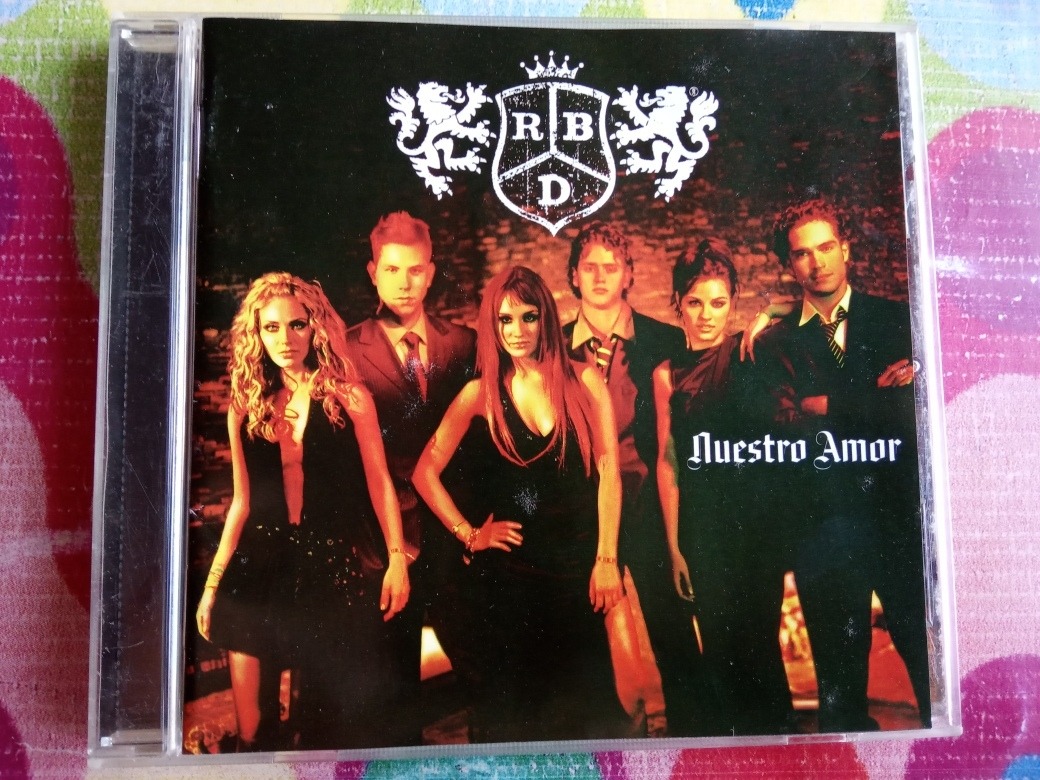
In Brazil, the success replicated, placing them in #1 on the main charts, thus, a month later, Celestial was also published in Portuguese, debuting on place #17 of the Albums Top 30.Īfter a successful world tour, where they sold more than 10 million tickets and after having consolidated as a success in the United States, RBD releases in 2006 their English album ‘Rebels’. If it wasn’t enough, they conquered the American audience, reaching #1 on the Billboard Latin Pop Albums. ‘Celestial’, their third album arrives in November 2006, catapulting the band on a global level standing out with a Gold Record in Romania, Spain, Chile and Ecuador, as well as Platinum and Gold Records in Mexico.

The DVD ‘Live in Río’ premiered one year later in Brazil, the United States and Mexico.

Later on, RBD returns to Rio de Janeiro in October 2006 to become the first Spanish-speaking band to give a show as main artist in the history of the Maracaná Stadium, the largest in the world, before 120,000 fans. The band sold out every show in their opening tour around the United States, from Madison Square Garden in New York to the American Airlines Arena in Miami. During their US tour, RBD performed in front of 65, 000 people at the Coliseum in Los Angeles, selling every single ticket for the stadium in just a matter of 30 minutes and becoming the second show with the highest income in the venue’s history (right after The Rolling Stones). The album got a Double Platinum Record in the United States and Gold Record in Mexico. ‘Live In Hollywood’ is the second live album by RBD, recorded during their first show in Los Angeles at the Pantages Theatre, as part of their world tour Tour Generación 2006. In May 2006, the album is published in Portuguese under the name ‘Nosso Amor Rebelde’, obtaining Double Platinum Record for more than 80 thousand copies sold in Brazil. Shockingly, after selling 127 thousand units, the album earned a Platinum Record just 7 hours after being released for sale in Mexico. After the success, ‘Rebelde’ is published in a Portuguese version for Brazil.įrom the first band’s tour called "Tour Generación RBD", a CD and DVD were released and received a Platinum Record in Mexico.Ī year later, RBD releases into the market their second production ‘Nuestro Amor’, which brands the band’s evolution since its formation. And soon it became Gold Record, then Platinum and later on Diamond Record for more that 500,000 copies sold in Mexico. Their debut album ‘Rebelde’ (2004), gave off great radio hits in Mexico: "Rebelde", "Solo Quédate En Silencio", "Sálvame" and "Un Poco De Tu Amor". They don't write the songs they just sing 'em.The musical band RBD emerges in 2004 after the success of the Mexican soap opera “Rebelde”, made up by its protagonists Anahí, Chistian Chávez, Dulce María, Maite Perroni, Christopher Von Uckermann and Alfonso Herrera but soon they left the small screen in order to write in the world of Pop Music in Spanish, a reality that overcame fiction. It's a quickly recorded follow-up that's short on catchy songs and long on glitzy studiocraft, and it makes Rebelde seem all the more charming in comparison. At least the handful of good songs sequenced early helps make Nuestro Amor an album that should engage the already established fan base, if not add to it significantly. Unfortunately, there's a lot of such filler here on Nuestro Amor the second half of the album is terribly vacant of highlights.

For instance, "Tu Lado" is all window dressing - a big, glitzy singalong ballad that functions best as filler, passing time until another good song comes along and seems all the better in juxtaposition. After all, over half of Rebelde is comprised of first-rate pop/rock confections in a 1980s arena rock mold, whereas Nuestro Amor is spottier and at times simply bad. This results in a more diverse batch of songs, once again with several standing out as sure-fire hits, namely "Nuestro Amor" and "Esta Corazón" above all, but also "Feliz Cumpleaños" and "Aún Hay Algo." However, even though Nuestro Amor runs a bit longer than Rebelde (14 rather than 11 songs) and is more stylistically diverse, it lacks some of the charm that its predecessor had in spades. The kids worked with a lot of different songwriters for this album, unlike Rebelde, which had been written largely by DJ Kafka and Max di Carlo, the songwriting team from RBD's concurrent telenovela. Evidently it helps when others write the songs and play the music, leaving only the singing for RBD. (In the meantime, they'd already recorded and released a live CD/DVD, Tour Generación RBD en Vivo.) It was rather amazing how quickly RBD were able to record a second studio album, since throughout the year they were busy touring and filming their telenovela.

Within a year's time, RBD followed up the blockbuster success of their debut album, Rebelde, with a new studio album, Nuestro Amor.


 0 kommentar(er)
0 kommentar(er)
